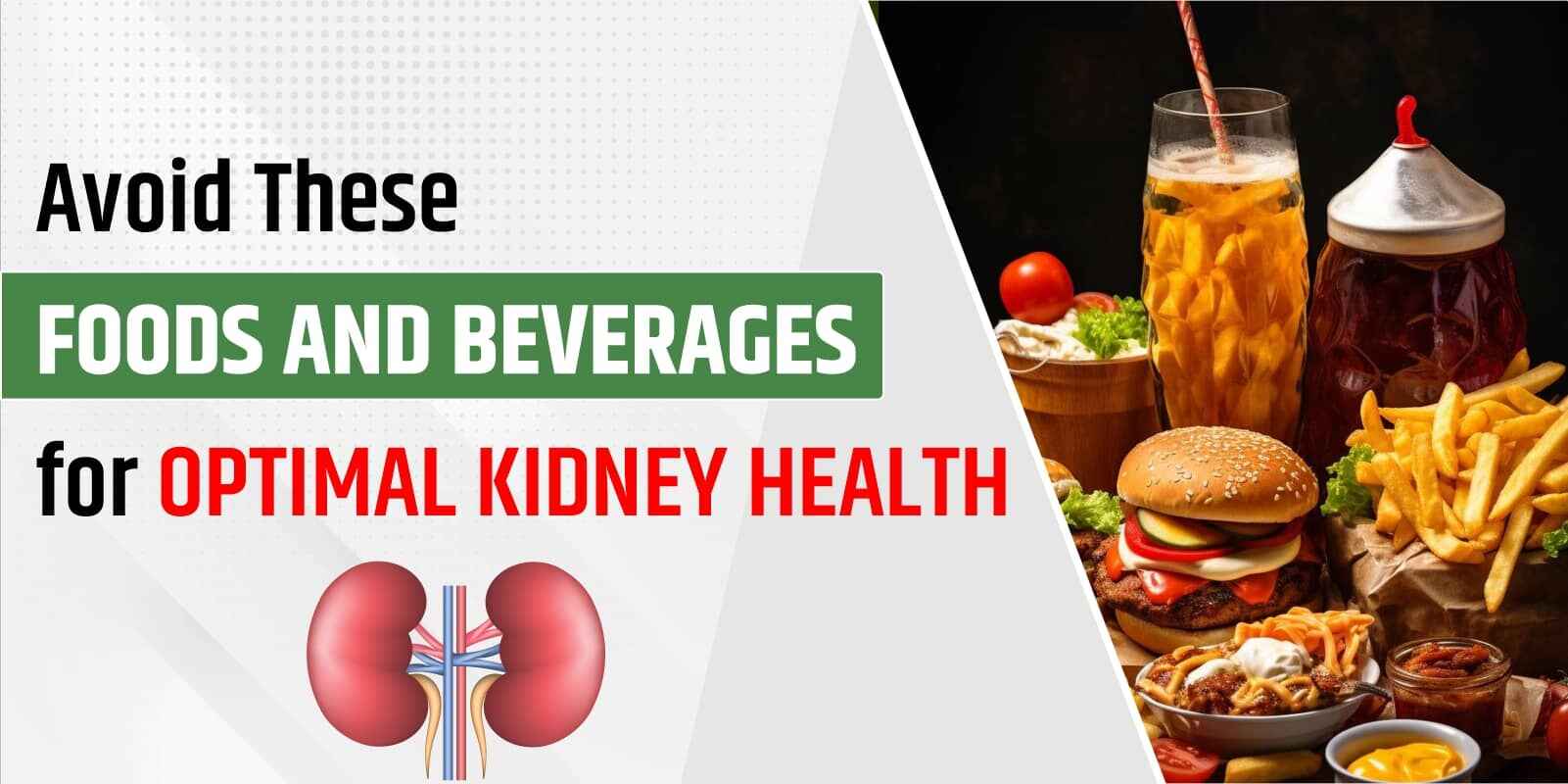
Making the appropriate food choices can help you manage kidney disease symptoms and slow down the progression of the condition. Whether you’ve recently been diagnosed with kidney disease or have been living with it for a while, it’s critical to eat a nutritious diet and drink lots of water to keep your general health and kidney function at its best. “There’s more and more emerging evidence that nutrition can have a major impact in the progression of your disease, whether it’s a renal disease or any other disease,” he says. Knowing what foods to avoid and which to eat more of if you have a kidney problem or want to maintain your kidney health can vary depending on the severity of your condition and your level of kidney function. Check in with your care team, including a renal dietitian, on a frequent basis, to ensure your success.
If you have kidney disease or want to keep your kidneys healthy, either you are taking allopathic treatment or Ayurvedic kidney treatment, the management of diet is very important.
Need personalized dietary advice for kidney health? Consult our renal dietitian today for a tailored nutrition plan.
Here’s a list of foods, drinks, and additives to include or avoid in your diet–
No matter what stage of kidney disease you have or you want to make your kidney healthy, you should take steps to limit or avoid the following:
To stay away from:
High blood pressure is a major risk factor for people with renal disease. High blood pressure can cause kidney damage and contribute to renal failure by preventing the arteries around the kidneys from performing properly. Don’t salt your meal at the table, cook with salt-free spices/herbs, and read food labels to see how much sodium is in each item.
Because hydration is so vital for overall health, staying hydrated is essential. But stay away from sugary beverages, which might cause weight gain or make it difficult to maintain a healthy weight. If you prefer a sugary beverage, keep in mind that cola and many other dark-colored drinks include phosphorus, a mineral that, in large levels, can cause changes in blood vessels, lungs, eyes, and heart. Because the kidneys have trouble eliminating additional phosphorus from the blood in chronic kidney disease (CKD), particularly ADPKD, high amounts of it can be harmful and raise your risk of heart attack or stroke.
Caffeine has a slight diuretic impact, which means it can make you want to go to the bathroom. Caffeine hasn’t been proved to have an effect on the progression of CKD. If you have ADPKD, you can drink coffee as long as you observe moderation. One caveat: coffee drinks generally contain a lot of sugar and fat, and some of them can have hundreds of calories in them.
It’s a good idea to limit your intake of packaged or processed foods. While certain processed meals, such as sliced vegetables or bagged products, are healthy, many others include added sugars and sodium. Crackers, chips, meats, and other processed meals should be avoided.
You should also restrict the quantity of takeout or in-person meals you undertake, as these options are often heavy in sodium. The sodium content of a “average” cheeseburger and French fries from a fast-food restaurant can easily exceed your daily sodium intake.
Unless your doctor has advised you to abstain completely from alcohol, a moderate amount of it will not harm your kidneys. However, excessive alcohol consumption can exacerbate renal problems. Excessive alcohol use can dehydrate you, raise your blood pressure, and develop liver disease.
Potassium levels can also be high in persons who have renal disease and are nearing kidney failure. Hyperkalemia is a condition in which the blood contains excessive amounts of potassium. Abdominal discomfort, diarrhea, nausea, and vomiting, as well as chest pain, heart palpitations, and muscle weakness or numbness in the limbs, are all possible symptoms. Potassium-rich foods include melons, bananas, oranges, avocados, and other fruits and vegetables.
Certain meals, such as those listed below, can help you maintain your general health and enhance kidney function if you have ADPKD.
Frozen fruits and vegetables with no added salt or sugar are a healthy alternative; canned veggies often include additional sodium, while canned fruit may contain added sugar.
Everyone needs to stay hydrated, but patients with ADPKD have an extra reason to do so. A hormone called arginine vasopressin, which has been associated to cyst formation, can be turned off by drinking enough water. However, consult your nephrologist before increasing your water intake. Consuming a high amount of water intake can be problematic if you have a low kidney function.
Protein helps your body build muscle and fight infections, but too much protein can build up as waste in your blood, and your kidneys may not be able to clear it all. You should consult your doctor or a nutritionist to determine how much protein you require, which varies depending on body size and stage of kidney disease. Seafood, chicken, eggs, legumes, nuts, seeds, and soy products are all good lean protein sources for those with ADPKD. Nutritional requirements may differ depending on the severity of your ADPKD and kidney function. To get personalized recommendations, talk to your medical staff.
Optimize your diet with our expert advice! Contact us for a personalized nutrition plan that supports kidney health.
CONCLUSION:
Check in with your care team, including a renal dietitian, on a frequent basis to ensure your god health. If you have kidney disease or want to keep your kidneys healthy, either you are taking allopathic treatment or Ayurvedic kidney treatment, the management of diet is very important.
"Ayurveda is not just a system of medicine; it's a way of life. Connect with us to embrace a lifestyle that nurtures your body, mind, and soul."

Certificate no- AH-2023-0186
JAN 05,2023-JAN 04,2026